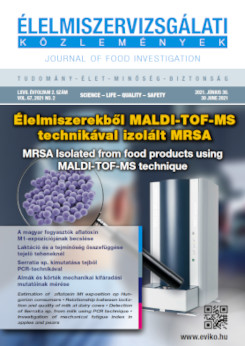Comparison of the mechanical fatigue indices of Golden Delicious apples and Packham pears
Main Article Content
Abstract
One of the most significant phenomena in the processing of horticultural crops, leading to the damaging of the fruit, is fatigue due to repeated mechanical stress, which endangers the integrity of the produce, especially during transport. In the event of such damages, the immediate environment of the damaged fruit, or even the entire batch of crops may be in danger, as the biological processes leading to spoilage are not limited to the individual crop damaged. In the case of repeated effects, a force less than the static limit value is sufficient to cause spoilage, but in addition to the load, the material properties of the given crop, as well as the energy balance observed during damage play important roles in determining the mechanical resistance. Accordingly, in our work, a description of the spoilage process is built on the material models most characteristic of the selected crops, on the dissipated energy indicators measured during repeated loads, and on the definition and determination of the spoilage time. In the experiments, the fatigue indices of Golden Delicious apples, making up most of the apple production of the European Union, and of long shelflife Packham pears are compared by setting up linear regression models.

